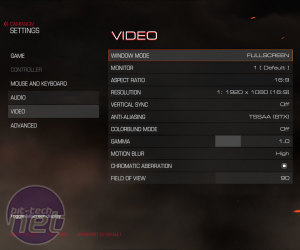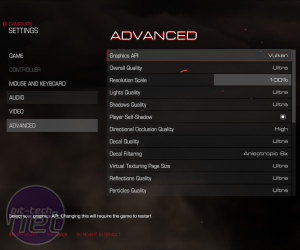Doom
Publisher: Bethesda SoftworksFrom our Doom review:
'Mainly though, it’s the single-player that revives Doom’s fortunes, which makes for a refreshing reversal of the norm for FPS’ these days. Even thinking about it as I write this gives me a little buzz of adrenaline, such is its incredible intensity and pace. There are mistakes, and I wish it brought a little more that was new to the fore. Nevertheless, the quality of Doom’s core combat is undeniable, and I doubt there’s a beating heart in the land that will remain steady when the portals of Hell open this time around.'
Doom is unique amongst our benchmarks for its use of the Vulkan API - OpenGL is also supported, but it's Vulkan that we're interested in benchmarking. FRAPS does not work at all with Vulkan, and though Doom has built-in performance metric monitoring there is no means of recording it. As such, we use PresentMon, an Intel-made Event Tracing for Windows (ETW) FPS monitor. Its command line interface and .csv results output make it fussy and time-consuming, so we also utilise the nifty PresentMonLauncher application that adds a basic GUI and a results analyser that gives you minimum and average frame rates - a big shout out to Andrew at TechteamGB and Jim at AdoredTV for their work on this. Recording in this way does appear to have a small performance penalty, but this affects all cards in a roughly equal fashion and is currently the best means of benchmarking Vulkan performance. We benchmark a 30-second manual run through an early part of the game that we found to be relatively demanding and also repeatable. It involves plenty of running, an explosion and blasting demons to smithereens - exactly what you'll be doing in-game.

MSI MPG Velox 100R Chassis Review
October 14 2021 | 15:04











Want to comment? Please log in.